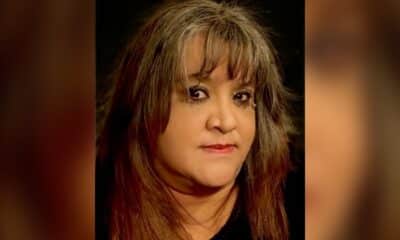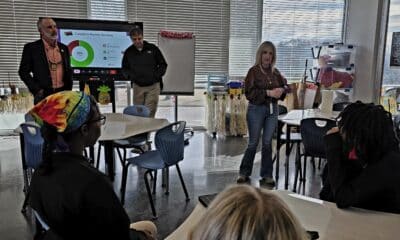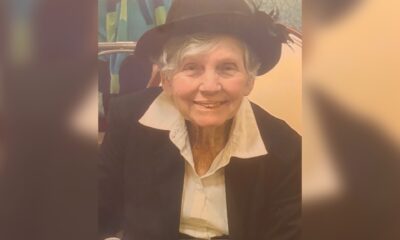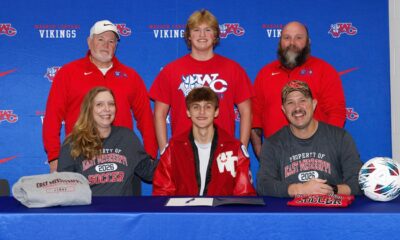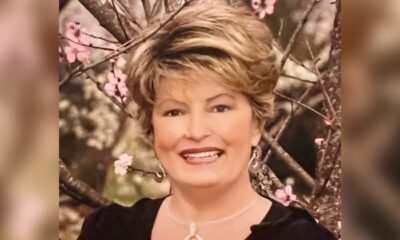History
Disaster, darkness, and a deadline: Louis Cashman’s defining hour
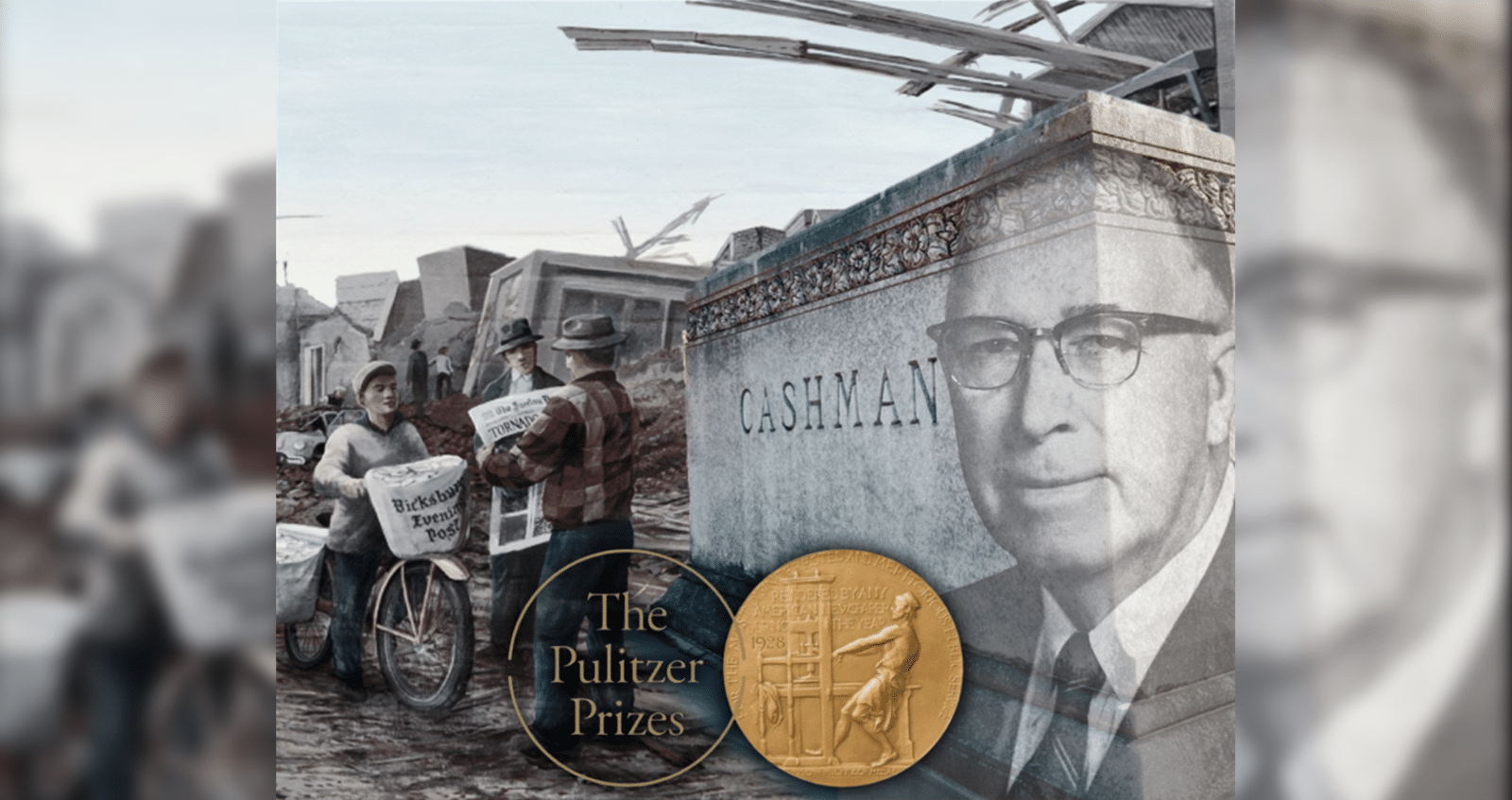
VICKSBURG, Miss. by Evan Winschel (VDN) — Today’s featured plot belongs to Louis Cashman (Nov. 18, 1886 – Nov. 5, 1961), the longtime publisher and editor of The Vicksburg Evening Post, who transformed a modest local newspaper into an award-winning publication and guided it through one of the city’s darkest days.
In 1883, John Gordon Cashman sat at his desk in the early morning hours, attempting to rub the sleep from his eyes after finishing the latest edition of the morning news. At 41, years spent working while everyone else slept had begun to lose its appeal. Sleep-deprived and eager for a change, a thought stirred in his mind: What if there was an evening paper instead of a morning one? What if the working day didn’t require long hours in the night?
Those ruminations became reality when, on May 4, 1883, John published the first edition of his new venture: The Vicksburg Evening Post.
Three years later, with the paper established, John and his wife, Fannie, welcomed a son—Louis Patrick Cashman. Louis’ journey with the paper began humbly enough. As a teenager, he handled odd jobs around the pressroom. After graduating high school, he became a full-time newspaper carrier and hand-setter of type.
By 1918, Louis had risen to business manager. In that role, he modernized advertising practices, launched an independent carrier system, and saved the paper considerable costs by purchasing newsprint in bulk. When John passed away six years later, Louis took over as publisher. In 1939, he was named editor.
Under Louis’ leadership, the paper grew from a staff of 12 and a daily circulation of 4,000 to more than 60 employees and over 10,000 daily copies. Advertising revenue climbed from $48,000 to $400,000 annually.
But perhaps his greatest test—and triumph—came after the events of Dec. 5, 1953.
The Christmas season was in full swing in downtown Vicksburg. With just 20 days left before the big day, merchants were busy assisting customers with their final preparations for the impending holiday. The day started out with crisp 50 degree weather, but by 1:30 p.m. temperatures had risen to an unseasonably warm 72 degrees. The festive decorations donning store fronts and suspended from streetlights started to increasingly sway as a strong wind shear developed in the region.
Locals had long believed that Vicksburg’s proximity to the river protected it from tornadoes. That myth would be shattered forever.
At 5:31 p.m., a tornado touched down just across the river and crossed the Yazoo Canal, slamming into Levee Street. A few blocks away, 10-year-old Stephanie Mitchell was celebrating her birthday at the Saenger Theatre. The joyful youths were watching the adventure film Botany Bay when the screen suddenly went black. With not even a moment to react, light reappeared as one of the exterior walls and roof collapsed, killing several of the children.
The storm tore through the central business district as residents scrambled for shelter. Buildings were destroyed, upper stories vanished, and wood-framed homes were ripped from their foundations. The tornado roared for what felt like an eternity before it finally dissipated into silence at 5:40 p.m.
In the sudden stillness and shock, survivors began to survey the damage. With thirty-eight people killed and hundreds more wounded, citizens dove into action. The staff of The Vicksburg Evening Post being among them.
“This was a time, above all others, when it was our duty to issue a newspaper,” Louis Cashman later told journalist John Nesbitt. “We knew the people of Vicksburg were trusting us to bring them the news—all of the news.”
Reporters and photographers took to the streets, documenting the extent of the damage and compiling a list of casualties. Without any utilities, Cashman and his staff made do with what was available. Charcoal was used to heat the gas stereotype furnace used to make printing plates, rainwater was collected in buckets to develop film, and the staff writers wrote their articles by candlelight.
“A journalist is the lookout on the bridge of the ship of state. He peers through fog and storm to give warning of dangers ahead. He is not thinking of his wages or of the profits of his owners. He is there to watch over the safety and the welfare of the people who trust him.”
Joseph Pulitzer
By morning, the Sunday edition was on the street—on schedule and packed with a full account of the previous day’s destruction.
For their extraordinary efforts, The Vicksburg Evening Post staff received the Pulitzer Prize in 1954—the highest honor in journalism. In 1956, the Hollywood television program Telephone Time aired an episode reenacting the newspaper’s heroic response, with actor Gene Lockhart portraying Louis Cashman.
Nearly eight years later, Louis Cashman passed away on Nov. 5, 1961. His obituary captured his legacy: “Under Cashman’s editorship, The Vicksburg Evening Post became known for its integrity and fairness in presenting the news, its constructive editorial policies, and its promotion and support of programs for improving the community.”
Cedar Hill Cemetery Association was formed in 2024 with the goal of assisting the City of Vicksburg in restoration and beautification of our historic Cedar Hill Cemetery. The Association will be presenting its inaugural tour event “Voices from the Hills” on October 16, 17, and 18, 2025 as part of Vicksburg’s Bicentennial Celebrations. For more information or to get involved, contact chcassociation@yahoo.com or visit their Facebook page.
See a typo? Report it here.

